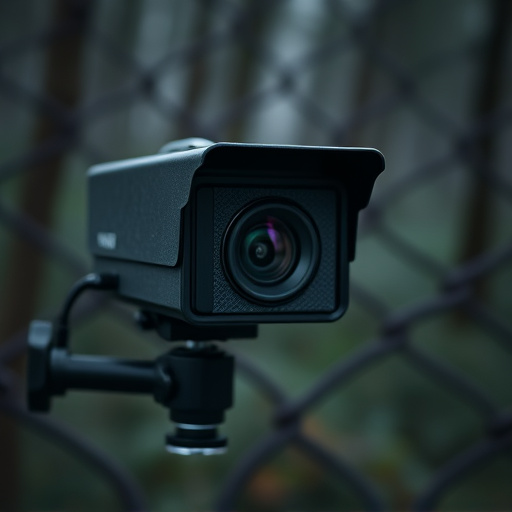Understanding and adhering to Hidden Camera Laws by State is crucial for balancing privacy rights and security needs. These laws vary widely, dictating consent, placement, and notification rules for hidden cameras, with professionals using advanced RF detection techniques to ensure legal compliance and uncover covert devices. Staying informed is vital for individuals and professionals to avoid penalties, maintain ethical practices, and navigate potential legal disputes related to surveillance in an evolving societal landscape.
Uncover the insidious world of hidden cameras with our comprehensive guide. Learn about detecting radio frequency signals and understanding the legal landscape surrounding hidden camera laws by state. From security tools and privacy rights to ethical considerations, this guide equips you with knowledge to navigate this complex issue. Ensure your safety and privacy in an era where surveillance is prevalent.
- Understanding Hidden Camera Laws: A Comprehensive Overview
- Detecting RF Signals: Tools and Techniques for Security
- By State Analysis: Legal Frameworks for Private Investigations
- Ethical Considerations: Privacy vs. Surveillance Rights
Understanding Hidden Camera Laws: A Comprehensive Overview
Understanding hidden camera laws is crucial for both individuals and businesses alike, as it involves protecting privacy rights while respecting security needs. The legal landscape surrounding hidden cameras varies significantly by state, making it essential to know the regulations in your area. “Hidden Camera Laws by State” provide a framework for identifying and mitigating potential legal issues related to surveillance equipment.
Each state has its own set of rules governing the use of hidden cameras, covering aspects such as consent, placement, and notification requirements. These laws are designed to balance the right to privacy with the need for safety and security. Individuals should familiarize themselves with these regulations to ensure their surveillance practices remain legal and ethical, avoiding potential penalties and safeguarding personal freedoms.
Detecting RF Signals: Tools and Techniques for Security
Detecting RF signals has become a crucial aspect of modern security measures, especially in light of evolving technology and the potential for hidden cameras to be used in private spaces. Tools designed to intercept and analyze radio frequency (RF) emissions play a vital role in identifying these devices, which often operate within legal grey areas, such as varying Hidden Camera Laws by State.
Professionals utilize specialized equipment like RF detectors and analyzers to scan for unusual signals that might indicate the presence of hidden cameras. These tools can detect wireless devices broadcasting on common frequencies used by CCTV systems or other covert recording equipment. By employing advanced techniques, including signal frequency analysis and pattern recognition, security experts can uncover hidden cameras in various settings, ensuring privacy and compliance with local laws.
By State Analysis: Legal Frameworks for Private Investigations
In the United States, the legal landscape surrounding private investigations and hidden camera detection varies significantly from state to state. Each state has its own set of laws that govern surveillance practices, with varying degrees of regulation on the use of hidden cameras. Understanding hidden camera laws by state is crucial for both professionals in the field of private investigations and individuals concerned about privacy.
The legal frameworks typically address issues like consent, reasonability, and the types of devices permitted for surveillance. Some states have stringent regulations that require explicit consent from all parties being recorded, while others allow for more discreet monitoring under certain conditions. It’s essential to stay informed about these hidden camera laws by state to ensure compliance and protect one’s rights in the event of a legal dispute related to surveillance activities.
Ethical Considerations: Privacy vs. Surveillance Rights
The ethical debate surrounding hidden camera usage is a delicate balance between privacy rights and public safety interests. On one hand, individuals have a reasonable expectation of privacy in their homes and personal spaces, as protected by both federal and state laws (including Hidden Camera Laws by State). Any unwarranted intrusion into this privacy can be seen as a violation of civil liberties. However, the other side argues that hidden cameras serve as crucial tools for law enforcement, helping to deter crime, gather evidence, and ensure public safety. This tension raises questions about where to draw the line between acceptable surveillance practices and potential invasion of privacy.
Respecting personal boundaries while enabling effective surveillance requires a nuanced approach. Legal frameworks vary across states, with some having stricter regulations on hidden camera deployment to protect citizens’ rights, while others may offer more leeway for law enforcement agencies. Understanding these laws is essential for both authorities using such devices and individuals concerned about their privacy in an increasingly surveillant society.
In conclusion, detecting hidden cameras using radio frequency (RF) techniques is a multifaceted endeavor that blends legal knowledge of varying state laws on hidden camera detection, ethical surveillance practices, and robust security tools. Understanding both the technological capabilities and the complex web of regulations surrounding hidden camera laws by state is paramount for professionals navigating this critical domain. By staying informed about ethical considerations and employing advanced RF signal detection methods, individuals can safeguard privacy rights while ensuring a secure environment in today’s digital era.
